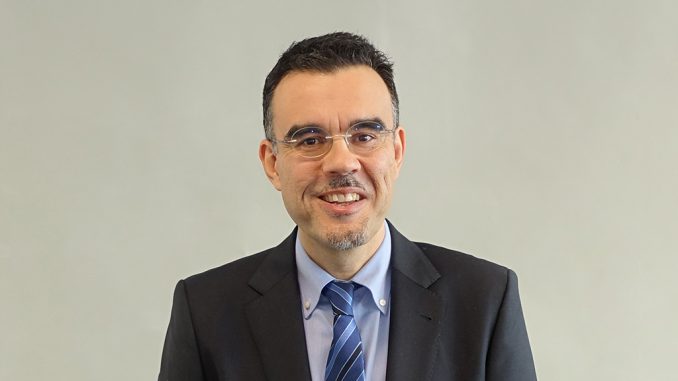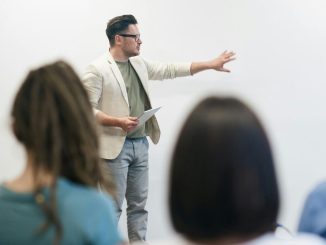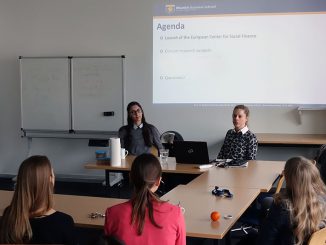
With the aim of more intensively networking Munich Business School and research-driven personalities whose research interests are in line with the research fields of MBS, the MBS Research Fellowship was newly created in 2020. Currently, there are four MBS Research Fellows who are already connected to the university in various ways. In our interview series, we introduce the scholars. Today it is the turn of Dr. Jose M. Alcaraz, faculty member of ESDES Lyon Business School in France.
MBS Insights: You have been very close to MBS since January 2017, in different roles and capacities, i.e. you were a member of the MBS core faculty and led the MBA program from 2017 to 2018. What attracted you to become an MBS Research Fellow now?
Jose M. Alcaraz: Being a Research Fellow is an opportunity to continue being part of the scholarly community of MBS, which is wonderfully connected to the Bavarian region and its robust business landscape. In other words, it is a great way to connect not only with other researchers but also with the regional big firms and German Mittelstand companies. At a personal level, I have been very lucky to develop my career in several continents, so I have experienced diverse (radically different!) country and organizational cultures. Nowhere I have felt the high levels of integrity, kindness and friendliness that I have experienced at MBS. So, you can only be positively and emotionally attached to MBS once you have worked for them.
MBS Insights: You have taught and researched at universities all over the world – at IESE Business School in your hometown Barcelona, at the Raffles Design Institute in Shanghai, at various universities in Dubai, at the Barna Management School in Santo Domingo, and at Murdoch University in Perth, Australia. How has travel and this cosmopolitan, international way of life shaped and influenced you, also with regard to your research?
Jose M. Alcaraz: Well, in fact, a significant part of my research revolves around the intriguing, increasingly important notion of “cosmopolitanism” or being “a citizen of the world”. My research asks questions such as: What is the relevancy of cosmopolitanism for management and ethics in an interconnected world? How can cosmopolitanism help us address the interdependent, complex sustainability challenges that firms are facing? Nevertheless, at MBS I saw lots of like-minded colleagues. I sincerely believe that the MBS values of innovative, responsible and globally minded are not simply nice, empty words. They nurture much of what MBS does or tries to do – and, in many ways, they are present in every corner of the organization. This consistency also shaped how I see myself as a researcher today and what I value. And, by the way, it only increased my already existing interest on initiatives such as the UN PRME (Principles for Responsible Management Education), a global project that is very close to my heart, and to which I have been very close for almost ten years.
MBS Insights: A look at your extensive list of publications makes it clear: here we are not dealing with a specific specialist researcher, but rather with a kind of universal scholar. You research on management, teleworking, innovation in the field of education, but also on sustainability and the environment or storytelling and science fiction. Take us a little with you: How does research work for you and how do you manage to link the various topics with one another? What are you currently particularly interested in?
Jose M. Alcaraz: Behind the topics that you mention there is an interest in “the global picture” that both responsible leaders and organizations may benefit from exploring. The global picture of a diverse and interdependent world (cosmopolitanism); crucial social-ecological linkages and earth limits (planetary boundaries) that corporate sustainability may need to understand; the unstoppable power of virtual work and technology (gender and teleworking); or the power of SciFi to imaginatively consider complex futures, etc. In addition, as an instructor, I am fascinated by how teaching and learning strategies may foster Deep Learning, that is, the transformation of knowledge, skills and emotions. Teaching is a beautiful, always perfectible craft. After twenty years teaching, one still feels that there is so much to learn! So, for example, the paper I recently submitted revolves precisely on teaching and learning on a particular theme on (global) sustainability.
MBS Insights: And a look back: If you had to choose one of your past research projects that shaped you or our environment the most, which one would it be?
Jose M. Alcaraz: Uff! I cannot really answer this question. The scholars that you meet, the concepts that capture your heart in different moments of your live, etc., they shape the different stages of your journey as an academic, they all become part of this incredible adventure of life, and the privilege to be an instructor and scholar (for me, still, the most beautiful profession of the world, despite academia being increasingly capture by bureaucratization).
Let me share (maybe playfully) a quote from TS Eliot:
“Time present and time past
Are both perhaps present in time future,
And time future contained in time past.
If all time is eternally present
All time is unredeemable.”
MBS Insights: What do you expect from the MBS Research Fellowship?
Jose M. Alcaraz: The Fellowship will allow me to stay in frequent touch with the research community of MBS at a formal, and at a more personal level. A way to connect with the engaged scholars that are increasingly making of MBS a University of Applied Sciences that (truly) produces societal and business-relevant research. In addition, I hope to be able to compete for some (always-helpful) research funding available :-).
MBS Insights: What do you value about MBS and which piece of advice for the future would you like to give MBS students?
Jose M. Alcaraz: Being part of a robust community of instructors and, increasingly, of scholars is a privilege. When that comes with the sincere values that permeate everything that MBS does, then it is quite unique. My advice for MBS students would be: Get close to the best fellow students that you meet. Engage sincerely and intensively with the most pro-active professors and researchers that you encounter. And read cutting-edge science from radically different and inter-disciplinary fields. Let those bonds translate into true curiosity, let learning help you flourish. Make of all this a transformative adventure. Because it really can be.

You are interested in economics and want to acquire in-depth business know-how?
Then the international business degrees at Munich Business School (MBS) are just right for you! At MBS you won’t cram dry theory from old textbooks, but learn in a outcome-oriented way and gain valuable practical experience. Convince yourself:
Bachelor’s in International Business
Master’s in International Business
Master’s in International Business I Finance
Master’s in Innovation and Entrepreneurship
Master’s in International Marketing and Brand Management
Master’s in Sports Business and Communication
MBA General Management
Doctor of Business Administration



